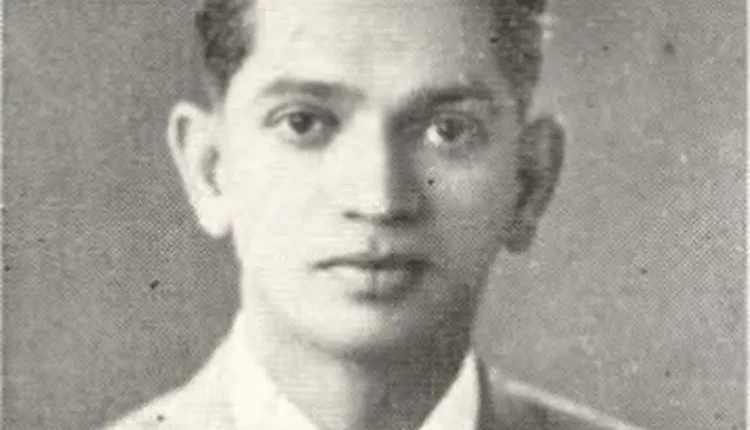In the sprawling heart of Thailand’s capital, where skyscrapers scrape the sky and neon lights dance into the night, the name “Nana” resonates like a whisper from history. But behind the urban rush of Sukhumvit Soi 3 and Soi 4, behind the BTS station that bears the same name, lies a deeply inspirational tale of resilience, faith, and forward-thinking leadership. This is the story of Lek Nana—a man whose life proved that true success is not measured in wealth alone, but in the lives one touches and the legacies one leaves behind.
Lek Nana: A Humble Beginning, A Great Destiny
Born in 1924 into a Muslim family of Gujarati ancestry, Lek Nana belonged to a lineage of immigrants who arrived in Thailand during the reign of King Rama IV. His great-grandfather was once a modest cloth merchant who sold Indian-made textiles to the Royal Palace. This spirit of enterprise and service ran deep in the Nana bloodline. But Lek Nana didn’t just inherit a family name—he inherited a responsibility to lead, uplift, and give back.
His remarkable journey began in the years following World War II. As Thailand rose from the ashes of global conflict, Lek Nana co-founded the Democrat Party, laying the foundation for what would become one of the nation’s most enduring political institutions. For him, politics was not about power—it was about purpose.
Faith, Politics, and Principles
A devout Muslim and senior figure in the Central Islamic Committee of Thailand, Lek Nana’s deep-rooted faith was never separated from his public service. In 1975, he was appointed Deputy Foreign Minister under Prime Minister Seni Pramoj. He brought dignity and diplomacy to the office, navigating regional tensions with wisdom and cultural sensitivity. Unfortunately, his tenure was cut short by the military coup that followed the tragic massacre at Thammasat University in 1976.
But his political flame never dimmed. In 1982, he returned as the Secretary General of the Democrat Party, serving under Bhichai Rattakul. His role wasn’t symbolic—he was a driving force, influencing national policies while preserving the integrity of the party. That same year, his life narrowly escaped tragedy when a powerful bomb exploded in his former office, claiming lives and sparking national unrest. Yet, he stood undeterred.
In 1985, following the death of his predecessor, Prime Minister Prem Tinsulanonda appointed Lek Nana as Minister of Science, Technology, and Energy. His appointment was a message: innovation, when guided by ethical leadership, can transform a nation.
The Landlord with a Heart of Gold
Many knew Lek Nana as the “Landlord of Bangkok.” His real estate empire stretched across some of the most valuable plots in the capital—particularly along Sukhumvit Road. But it was never just about property. It was about purpose-driven philanthropy.
He donated the land for the Democrat Party headquarters, the Princess Mother Memorial Park, and even a hospital. His generosity wasn’t performative—it was transformative. He believed that wealth, when shared wisely, could elevate entire communities. And elevate he did.
Uplifting the Muslim Identity in Thailand
Lek Nana’s impact stretched far beyond buildings and ballots. He was instrumental in empowering Muslim communities in Thailand, promoting religious education, preserving Islamic arts, and protecting cultural identity in a diverse and complex society.
The Tuan Suvannasat Foundation, now a vibrant center of Islamic scholarship, was revitalized under his family’s guidance. The historic building on Charoen Krung Road—once his grandfather’s property—is today home to the Hafiz Quran School and the upcoming Prophet Mohammad Museum, a cultural and educational beacon for generations to come.
Through the Waqf Fund, Lek Nana helped build mosques and Islamic schools across the country. And the family’s Zakat Fund continues to support orphans, disaster victims, and those affected by violence in Thailand’s far south.
During the holy month of Ramadan, his companies reduce work hours to accommodate fasting—a small yet powerful gesture that reflects the family’s commitment to faith-centered management.
More Than a Name, A Living Legacy
While the name “Nana” now graces hotels, train stations, and entertainment hubs, its most meaningful legacy lives in the hearts of people—those who benefited from Lek Nana’s vision, compassion, and leadership. He understood, better than most, that a name on a map means little if it doesn’t stand for something greater.
Lek Nana passed away on April 1, 2010, at the age of 85. He was buried with royal honors at Ban Somdej Mosque in Thonburi—a quiet resting place for a man whose spirit still echoes through the city’s skyline.
Also Read : S. Jayaraman: Pioneering Tamil Literature and Yogic Enlightenment in Singapore

